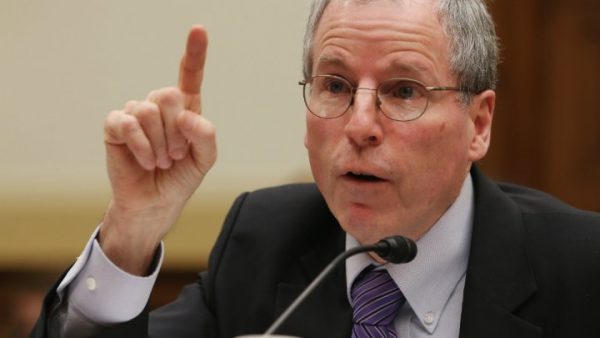
The last person to serve as U.S. ambassador to Syria predicts that Syrian President Bashar Assad will try to use chemical weapons again despite the U.S. military strike against last week.
“I think the strikes that we did last week on that airbase were very good,” Robert Ford said on “CBS This Morning.” “It’s time to try to deter Assad from using chemical weapons, so I think that’s a good step. But it’s only a step. Assad will almost certainly try to use chemical weapons again, and so I think it will be hard to convince the Russians to lean on Assad to stop using chemical weapons.”
American forces fired 59 Tomahawk missiles at a Syrian airfield last week, the first time the U.S. military has directly intervened in the Syrian civil war by attacking Assad’s forces. The bombing was in response to a chemical attack that killed more than 80 civilians that U.S. officials say was carried about the Assad loyalists.
Bombing a single airfield won’t do much to hurt Assad’s military capabilities, however, and the government has already launched jets from the site since the attack.
But supporters of the strike say it was meant to deter Assad from carrying out future chemical attacks.
The strike has raised questions about President Trump’s broader Syria strategy and whether he will pursue regime change.
In Monday’s interview, Ford said he does not think the United States has the capacity for regime change because of Russia and Iran’s support for Assad.
“What we would like to see is a negotiation between all the different sides to come up with a new government,” said Ford, who served as ambassador to Syria from 2011 to 2014.
Ford said the U.S. needs some sort of leverage for negotiations. Asked whether that meant the use of force, Ford said it meant “some kind of military pressure.”
“I didn’t want U.S. direct force involvement,” he continued. “I always wanted us to help Syrian fighters on the ground who themselves wanted to negotiate.”
Ford said the priority now should be deterring another use of chemical weapons in Syria.
“I think the most important thing right now is to re-establish deterrence against chemical weapons,” he said. “That’s a distinct, limited goal. It’s not a big goal like fixing the civil war — just deterring the use of chemical weapons because that applies not just to Syria, but that also applies to Asia, applies to Africa.”
Ford, who resigned as ambassador amid disagreements with the Obama administration, said the 2013 deal for Assad to give up his chemical weapons was flawed because Russia did not enforce it.
“The deal was flawed that way in that we could not get the Russians to enforce it,” Ford said. “There was an agreement in 2013 that if Assad even used chlorine gas, that the Russians and the Americans would take measures. The Russians didn’t keep their end of the bargain.”
He knocked the Obama administration for not responding to Assad’s chlorine gas attacks after the deal was in place.
“We could not get the Obama administration to react to that,” Ford said. “Even after the 2013 deal with the Russians, Assad began using chlorine gas. That’s why I said, they test, they test, and they test.”

Leave a Reply
You must be logged in to post a comment.